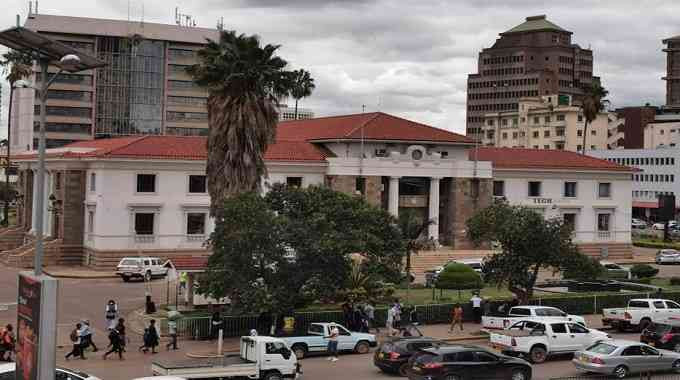
The economy has been experiencing some measure of macroeconomics stability following the fiscal and monetary reforms the government has been implementing. This stability has been shown by the significant fall in the monthly inflation figures from 30,7% in June 2022 to 3,2% in October 2022, while annual inflation has decelerated from 285% in August 2022 to 268,8% in October 2022.
The annual inflation rate however still remains quite high and this has disproportionately affected the vulnerable and marginalised groups such as the elderly as well as persons with disabilities.
While there has been improved allocation and spending towards critical sectors of the economy such as social protection, education, health care and infrastructure, these improvements are still below regional and international benchmarks. Zimbabwe is a signatory to various regional and international agreements that provide benchmarks on budgetary allocation to fundamental poverty reducing and productivity enhancing sectors of the economy.
Consequently, economic growth in the country has not been fast and inclusive enough to absorb the growing labour force and to have a significant poverty reduction impact. Most of the labour force is employed in the informal economy with the 2022 Q2 Labour Force Survey finding that 88% of total employment in Zimbabwe is informal. Informal employment is often characterised by lower productivity, lower pay, limited social protection coverage, high levels of working poverty, poor working conditions and occupational safety and health (OSH) practices.
On the other hand, high levels of informality limit the capacity of the State to sustainably mobilise domestic resources and also to effectively deploy micro and macroeconomic policies such as the National Budget to promote decent work. The lack of sufficient full, productive and decent jobs is complicating efforts to end poverty in the country.
The National Budget can be an effective instrument for promoting decent work through the adoption of a proactive pro-employment budgeting framework. Proactive pro-employment budgeting is about integrating, or mainstreaming, an employment perspective in the planning and budgeting process of a country’s government.
This approach of budgeting uses tools and methodologies with a common requirement to ensure that employment issues are mainstreamed in all budget documents and procedures, at the various stages of budget preparation, implementation, monitoring and reporting. Pro-employment budgeting aims to ensure, firstly, that policies of all relevant government agencies take employment concerns into account. It also aims to ensure that the agencies then allocate and spend funds in a way that allows effective implementation of the proactive pro-employment policy.
Mainstreaming employment in the national budget is challenging because of the multisectoral nature of employment and because of the various measures, programmes and institutions that influence the demand and supply of labour and the functioning of labour markets.
- Drama around Ndebele king making a mockery of the throne
- Umkhathi Theatre Works on King Lobengula’s play
- Street mural exposes Zim’s divided society
- Minister tips ICTs to drive economic recovery
Keep Reading
On one hand, integrating employment in budgets requires that ministries in charge of labour have adequate fiscal resources and capacity to implement labour market policies and to coordinate the implementation of national employment policies with key productive ministries such as the ministries of Agriculture and Industry among others. On the other hand, sectoral ministries must also make employment a central and accountable target of their sectoral policies and budget and must also be sufficiently resourced and equipped to assess the impact of their policies on employment.
Proactive pro-employment budgeting is not simply about increasing the number and percentage of people in a country who are employed. It is also about ensuring that existing jobs and any new jobs that are created are decent in line with international labour standards. This means, among others, that the work is done under favourable conditions, that the earnings are sufficient to allow workers and their dependents to live a decent life, and that workers’ rights are respected.
Decent work involves opportunities for work that is productive and delivers a fair income, security in the workplace and social protection for families, better prospects for personal development and social integration, freedom for people to express their concerns, organise and participate in the decisions that affect their lives and equality of opportunity and treatment for all women and men.
While the importance of job creation is now being acknowledged in a number of countries, it's seldom quantified, qualified or monitored. In some instances, the projected employment effects from investment projects and economic growth have not been supported by credible evidence. This is also critical and relevant for Zimbabwe as the macroeconomic economic fiscal framework underpinning the 2022 National Budget shows that formal employment rose from 806 700 in 2020 to 963 200 in 2021, representing a 19,4% increase in formal employment. Conducting Employment Impact Assessments (EmpIAs) can help to quantify the employment potential and impacts of public investment programmes in the infrastructure sector, particularly in sub-sectors where labour-based construction methods are technically feasible and cost-effective. EmpIA can be ex-ante where it is used as a prognostic tool to simulate the current and future impacts of a public investment programme or ex-post where it is used to evaluate the employment effects of completed projects.
A number of countries including China, South Korea, Tanzania and Rwanda with support from the International Labour Organisation (ILO) have successfully integrated and mainstreamed employment in the National Budget through the adoption of pro-employment budgeting.
Since 2002, China has been implementing a proactive employment policy that includes: giving tax breaks for firms set up by college graduates and unemployed people, to help create more jobs; supporting companies if they refrain from laying off workers via the unemployment insurance scheme; encouraging entrepreneurship and employment by enterprises through reduction of or exemption from tax and fees; assisting rural migrant workers to start new businesses through small guaranteed loans; and strengthening the social security system.
Key guiding questions for pro-employment budgeting are as follows: Is employment promotion a priority issue in the preparation of the policies and budgets of government ministries and departments? Does the Ministry of Finance and Economic Development consider employment promotion as a criterion when it decides on allocation of funds to different ministries and programmes? Are the activities funded by government agencies used in a way that optimises the impact on employment? Do the budget-related reports of government ministries and departments include indicators related to employment creation?
Chitambara is an author, development economist, policy advisor, and bible scholar who is based in Harare. These weekly New Perspectives articles are coordinated by Lovemore Kadenge, an independent consultant, past president of the Zimbabwe Economics Society and the Chartered Governance & Accountancy Institute in Zimbabwe (CGI Zimbabwe). — [email protected] or mobile: +263 772 382 852.











